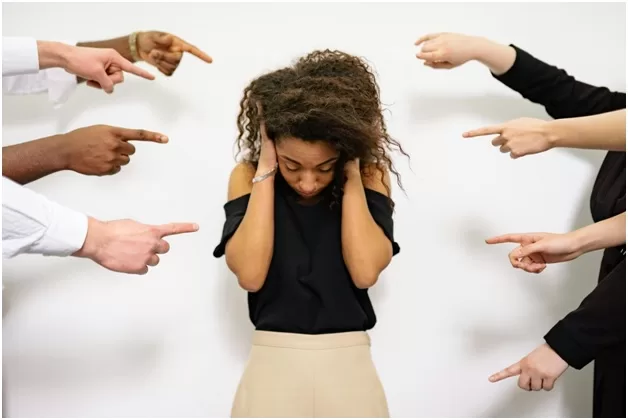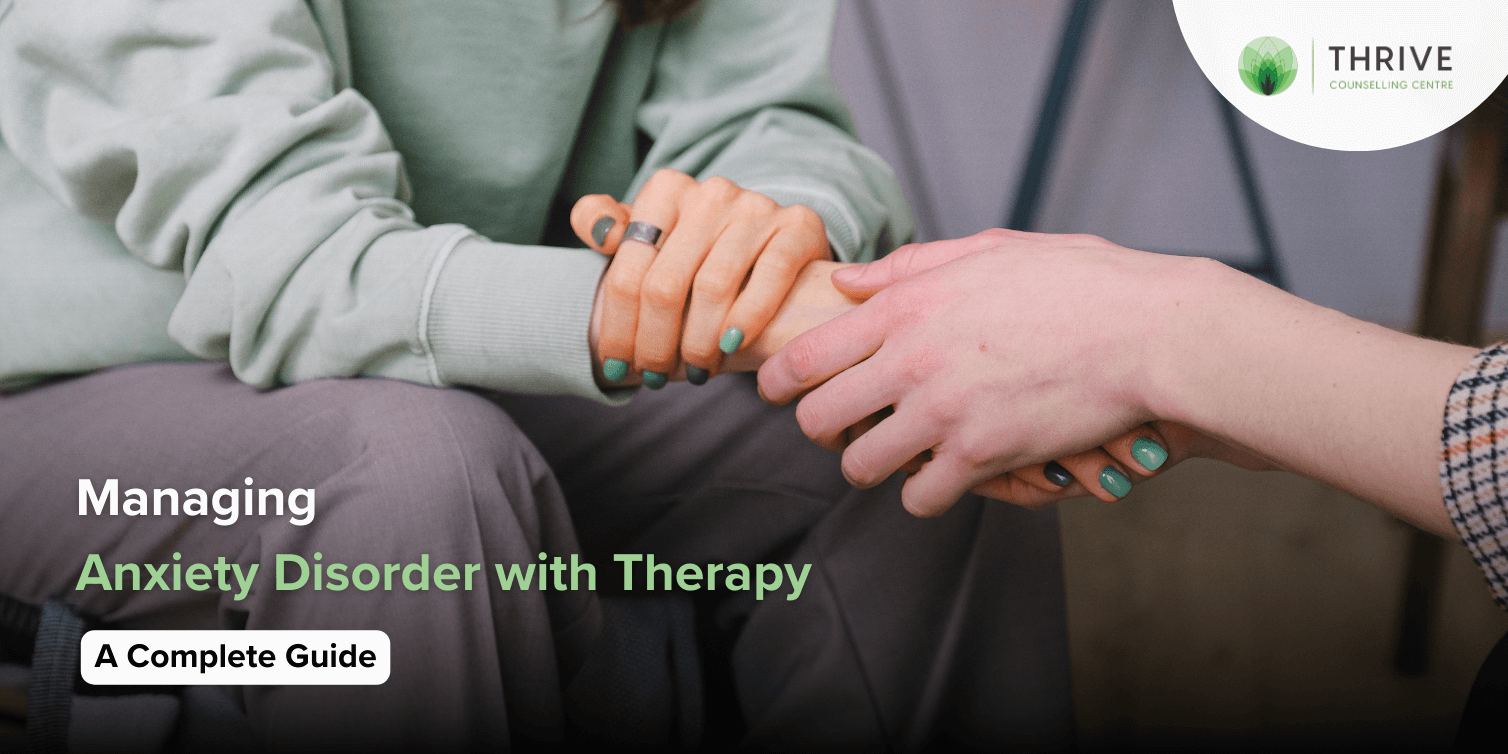Efficient Methods in Counselling for Stress And Anxiety Condition: A Path to Recuperation
When encountering stress and anxiety problems, you could really feel unsure and overloaded of where to turn. Efficient coaching strategies can lead the way for healing, offering you with the devices to navigate your challenges. From cognitive-behavioral methods to mindfulness techniques, each strategy supplies distinct advantages. Comprehending just how these methods work together can make a substantial difference in your journey. What are the crucial elements that will assist you in the direction of lasting change?
Comprehending Anxiety Conditions: A Thorough Introduction
It's important to identify that they encompass an array of conditions defined by excessive fear or worry when you think concerning anxiousness disorders. These problems can show up in numerous ways, including generalized stress and anxiety disorder, panic attack, and social stress and anxiety disorder. You may experience symptoms like rapid heart beat, sweating, or trouble concentrating. It prevails to feel overwhelmed, and these sensations can disrupt day-to-day life.Understanding the origin of anxiety is important. They can stem from genetics, brain chemistry, or environmental aspects. You may discover that certain circumstances cause your stress and anxiety, making it important to recognize these triggers.
Cognitive Behavior Modification (CBT): Improving Idea Patterns

Mindfulness and Leisure Techniques: Growing Present-Moment Understanding
Mindfulness and relaxation strategies aid you grow present-moment understanding, permitting you to take care of anxiety a lot more effectively. By concentrating on the present moment, you can damage devoid of the cycle of fear and rumination that frequently fuels stress and anxiety. Begin by exercising deep breathing exercises. Inhale slowly with your nose, hold for a minute, then breathe out with your mouth. This simple technique can soothe your mind and body.Engage in mindfulness reflection by setting apart a few mins daily to observe your ideas without judgment. Take notice of your breath, feelings, and the noises around you. You might likewise discover worth in progressive muscular tissue relaxation, where you strained and relax each muscle mass team, advertising physical and psychological ease.Incorporating these methods into your day-to-day regimen can develop a greater sense of control, decrease anxiety signs and symptoms, and boost your overall well-being. Remember, uniformity is key to experiencing the benefits.
Exposure Treatment: Facing Concerns Gradually
Exposure treatment helps you encounter your anxieties slowly, enabling you to build confidence in time. By utilizing progressive exposure strategies, you can gradually challenge what makes you nervous while establishing reliable coping mechanisms. This procedure not just lessens your fear yet additionally equips you to take care of anxiousness much more efficiently.
Steady Exposure Techniques
You can efficiently lower anxiousness and reclaim control over your life when you confront your fears slowly. Gradual exposure techniques include encountering your concerns tip by step, beginning with less frightening situations. You may begin by imagining the been afraid scenario, after that advance to watching images or videos connected to it. At some point, you can exercise challenging the fear in genuine life, but only when you really feel prepared. This approach enables you to construct self-confidence as you move with each phase. Bear in mind to rate yourself; hurrying can boost anxiety. Commemorate little victories in the process, as each progression encourages you. By continually using these techniques, you'll locate that your fears start to lose their hold on your mind.
Building Coping Systems
Structure effective coping systems is necessary for taking care of stress and anxiety, particularly as you encounter your worries progressively through exposure treatment. Start by recognizing your particular concerns and breaking them down into workable actions. In this manner, you can progressively challenge each anxiety without becoming overwhelmed. If you have a hard time with social situations, beginning by practicing small communications, like greeting a neighbor.Alongside steady exposure, include relaxation methods such as deep breathing or mindfulness to soothe your mind prior to encountering triggers. Keep a journal to track your progress and commemorate little triumphes. Border yourself with helpful pals or a therapist that can lead you. Keep in mind, it's a journey-- patience and determination will enhance your coping systems, resulting in greater resilience versus anxiety.
Supportive Therapy: Structure Trust Fund and Rapport
To successfully support a person with anxiety, developing trust fund and connection is important from the really initial session. You'll intend to develop a secure space where they feel comfy expressing their ideas and feelings without judgment. Active listening is vital; show genuine rate of interest in what they share. Acknowledge their feelings and validate their experiences. It's crucial to be compassionate, as this helps build a link and motivates openness.Be consistent in your approach and keep discretion to additional strengthen that trust fund. Usage open body movement and make eye contact to convey your attentiveness. Bear in mind, your patience goes a long method; structure rapport requires time, and it's crucial to value their rate. By cultivating this encouraging environment, you'll empower them to engage more completely in the healing procedure, making it simpler for them to explore their anxiousness and work toward recovery.
Team Therapy: Shared Experiences and Collective Recovery
Team therapy can be a powerful device for those dealing with stress and anxiety conditions, as it enables individuals to share their experiences and find solace in the understanding of others. In this encouraging environment, you can reveal your sensations without concern of judgment. Listening to others' tales can normalize your own experiences, making you feel less alone in your struggle.Participating in group treatment aids you develop dealing strategies through shared expertise and understandings. As you listen to others, you may discover new methods to tackle your anxiety that you had not taken into consideration before.Moreover, the cumulative recovery that happens in these sessions can promote a sense of community, reminding you that you're not facing your obstacles alone.Building links with others that recognize your battle can enhance your self-confidence and motivation to confront your anxiety. Group treatment produces a room where growth and recovery come to be a shared trip, encouraging you to take actions toward recuperation.
Integrating Way Of Life Changes: All Natural Strategies to Anxiety Management
While therapy provides crucial assistance, incorporating lifestyle changes can greatly boost your ability to take care of anxiousness. Beginning by incorporating regular exercise right into your routine. Exercise releases endorphins, which can boost your state of mind and lower stress and anxiety. Next, take notice of your diet. Consuming a well balanced diet plan rich in fruits, vegetables, and whole grains can positively affect your psychological well-being. Do not forget rest-- purpose for 7-9 hours per evening, as top quality remainder is important for psychological regulation.Mindfulness practices, such as reflection or yoga, can also assist you remain grounded and existing. Consider establishing aside time every day to exercise these methods. Limit caffeine and alcohol intake, as they can worsen anxiousness symptoms. By making these alternative changes, you develop a stronger foundation for taking care of anxiousness, matching the benefits gained from treatment. Keep in mind, every small action depend on your path to recovery.
Frequently Asked Concerns
What Are the Typical Physical Signs of Stress And Anxiety Problems?
Usual physical signs and symptoms of anxiety problems include quick heart price, shortness of breath, muscle tension, sweating, and headaches. You might additionally experience exhaustion, lightheadedness, or stomach issues, which can even more complicate your day-to-day live.
How Much Time Does Therapy for Anxiousness Usually Take?

Counseling for anxiety normally takes a couple of weeks to numerous months, depending upon your private demands and development. counselling for anxiety. You'll discover that normal sessions aid you establish dealing approaches and obtain insights into your stress and anxiety
Can Anxiousness Disorders Be Completely Cured?

What Should I Do in an Anxiety attack?
Throughout a panic assault, concentrate on your breathing. Breathe in deeply via your nose, hold for a moment, then exhale gradually - counselling for anxiety. Ground yourself by naming items around you, and advise on your own it will pass
Are There Medications for Stress And Anxiety Problems?
Yes, there are several medicines for stress and anxiety conditions, consisting of antidepressants and benzodiazepines. You ought to get in touch with a healthcare expert to discover the ideal therapy plan tailored to your details demands and conditions for the very best results. When you think concerning anxiousness problems, it's essential to identify that they include an array of problems defined by excessive fear or fear. These problems can materialize in various ways, consisting of generalized stress and anxiety condition, panic disorder, and social get more info anxiety problem. Structure effective coping devices is crucial for taking care of stress and anxiety, especially as you encounter your worries gradually via exposure treatment. Group treatment can be a powerful device for those dealing with stress and anxiety disorders, as it enables people to share their experiences and discover relief in the understanding of others. As you pay attention to others, you may uncover brand-new ways to tackle your stress and anxiety that you hadn't thought about before.Moreover, the cumulative recovery that occurs in these sessions can foster a sense of community, reminding you that you're not facing your challenges alone.Building links with others who recognize your struggle can boost your confidence and motivation to challenge your anxiety.